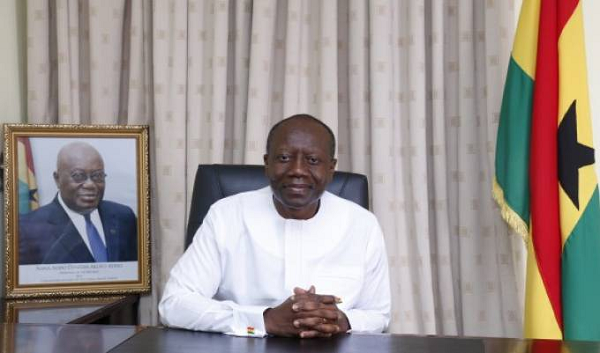
Don’t renege on the tariff reduction policy
Residential and non-residential electricity consumers in the country will enjoy a 13 per cent reduction in tariff, beginning January next year, the Finance Minister, Mr Ken Ofori-Atta, announced in Parliament during the presentation of the 2018 Budget last Wednesday.
Advertisement
Additionally, other composite charges in the tariff build-up of electricity have been reduced by the government.
The reduction in electricity tariffs, as contained in the 2018 Budget, are: residential – up to 13 per cent; non-residential – 13 per cent; special load tariff - low voltage – 13 per cent; special load tariff - medium voltage – 11 per cent; special load tariff - high voltage – 14 per cent, high voltage mines – 21 per cent.
The government will also aggressively pursue the national LPG promotion policy to streamline the sector.
This reduction is “to give relief to the poor whose individual consumption falls in the subsidised life-line category but who live in a compound house. The existing four-tier tariff classification of residential consumers will be collapsed into lifeline and non-lifeline consumers in phases”.
This is because the cost of power to businesses in Ghana is among the highest in West Africa.
The Daily Graphic is excited at this move because it will make power affordable for enterprises, since it is a critical input in the cost of production.
The price of power is always discriminated in favour of businesses because of the multiplier effect of what businesses use power for.
All over the world, there is price discrimination in favour of businesses, with Cote d’Ivoire and other West African countries working to get cost of power reduced for industry and enterprises.
Comparatively, Ghana’s electricity tariff for commercial users is $0.32 per kilowatt hour, while domestic users pay 19.28 cents for the same consumption.
But neighbouring Cote d’Ivoire charges $0.13 for commercial users per kilowatt hour and $0.9 per kilowatt hour for domestic users.
The price disparity is due to the fact that the Francophone country produces cheaper power than Ghana.
Though many political commentators see the downward review of power tariffs as the fulfilment of another 2016 electioneering promise, the Daily Graphic sees it as a major boost for businesses.
Our position is buttressed by the fact that the Business Barometer (BB) report released by the Association of Ghana Industries (AGI) in February this year cited the high cost of electricity as a major challenge to the growth of businesses in the fourth quarter of 2016, followed by a high number of taxes and the delay in paying for projects.
The issue of high electricity tariffs is still the number one challenge for businesses and it cuts across almost all the regions.
Since this is an important policy statement that is expected to make our manufacturing sector globally competitive, we would like to caution the government not to renege on it but do all it can to ensure that it is implemented.
For us, we are all for removing the bottlenecks that hinder the growth of the manufacturing sector to make the sector plough back some of its profit into expanding businesses, so that they can employ more people and make the sector globally competitive.




